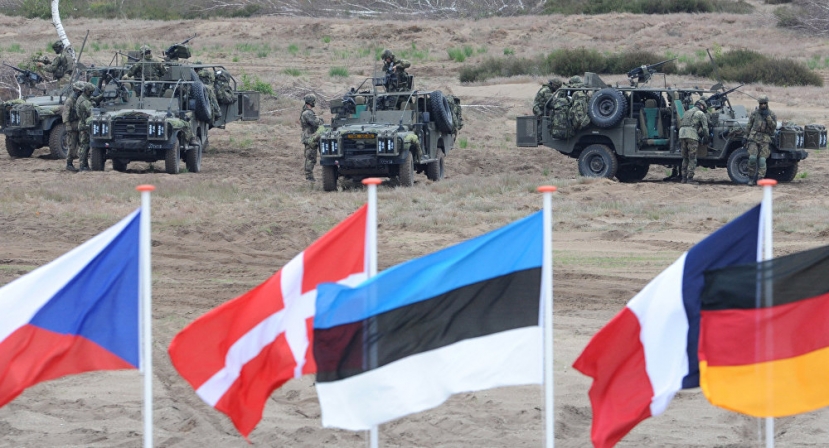NATO Wants to Revive Cold War Era Military Spending Norm
07.07.2016 15:53
 NATO Wants to Revive Cold War Era Military Spending Norm
NATO Wants to Revive Cold War Era Military Spending Norm
The Cold War was the period when military spending in many countries grew almost without control. As a result, in some countries military budgets reached a stunning two percent of GDP.
When the Berlin Wall fell in 1989 it became clear that the threat from the Soviet Union overinflated, but it was used to justify increased military spending in the West, Belgian lawmaker Dirk Van der Maelen wrote in an article for the newspaper De Morgen.
"But history may repeat itself on July 8-9 during the NATO summit in Warsaw. During the summit, a decision is expected to be made to increase military spending by European NATO members. Lobbying groups have again brought up the Russian threat to politicians and the European public," the lawmaker wrote.
NATO is expected to demand of all its members an increase to their military budget to at least two percent of GDP. And they are likely to follow the demand.
The author wondered why NATO wants its members to increase military spending.
"Total military spending of the NATO members since 1990 has reached €20.2 trillion. At the same time, Russia has spent only €1.3 trillion on defense since 1990. NATO’s demand to increase military spending sounds absurd," the article read.
The only reason for this requirement is that the United States wants an arms race against China, Van der Maelen wrote.
"Europe should not be involved in this process because Europe is not interested in supporting Washington’s ambitions to deter China," he added.
According to him, during the summit, European countries should not increase military spending and instead invest in the EU’s defense capabilities.
"As for our country, I see more rational alternatives. We should invest in cyber-security as well as intelligence and security services. This would help us fight terrorism," Van der Maelen suggested.
"This is why I’m calling on the Belgian government to oppose the new NATO norm of two percent and adopt a two-percent norm for the EU, including one percent of GDP for defense and one percent for global social and environmental challenges," he concluded.
